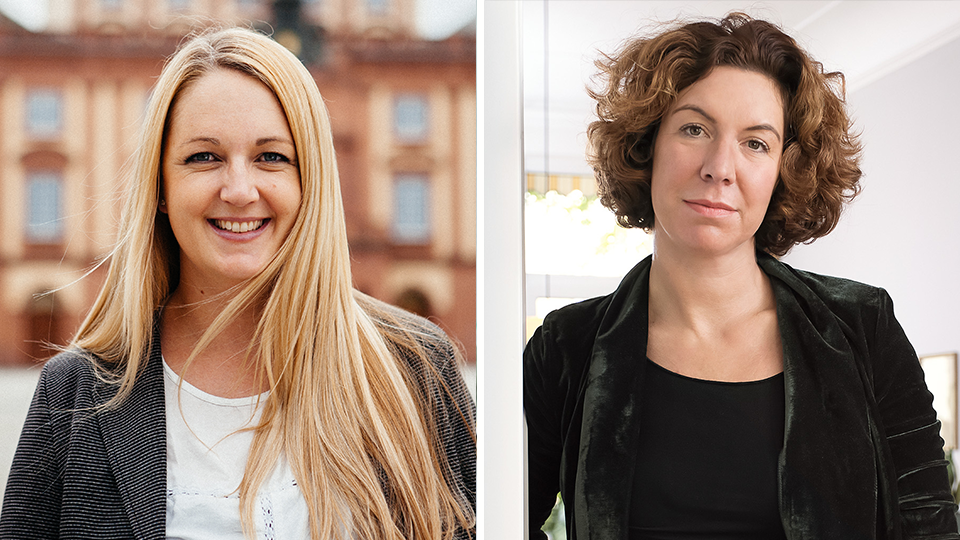Prof. Dr. Laura Marie Edinger-Schons
Professor of Sustainable Business and Vice President Sustainability and Information Provision at the University of Mannheim
Laura Marie Edinger-Schons is Professor of Sustainable Business and Vice President Sustainability and Information Provision at the University of Mannheim. In her research she focuses on the question how organizations can contribute to sustainable development as defined in the United Nations Sustainable Development Goals. Specific topics which she is interested in are Employee Engagement in Sustainability, Social Entre/Intrapreneurship, Digital Social Innovation, Corporate Democracy, and New Work. Her work has been published in renowned academic journals including Journal of Marketing, Journal of Consumer Psychology, Journal of the Academy of Marketing Science, and Journal of Business Ethics.
She received the Overall Best Paper Award at the 2014 Winter AMA, was voted into the Top Ten Junior Academics 2015 (by Zeit and academics), and received the German Science Award 2016 for the Best Collaboration with Private Business. For her teaching, she received the AACSB Innovations that Inspire Award 2017. For her habilitation thesis she received the Wolfgang-Ritter Award 2017, the Roman Herzog Research Award 2018 as well as the Max Weber Award for Business Ethics 2018. In 2019, she was voted into the Top 40 under 40 by the magazine Capital.

Kristina Jeromin: Dear Laura,
Thank you very much for agreeing to talk to me about the Sustainability Transformation Monitor for the newsletter of the Green and Sustainable Finance Cluster Germany. You accompany the project from the scientific side and give us insights into the initiative and the objectives of the survey.
What is the STM and what are the objectives of the survey?
Edinger-Schons: The Sustainability Transformation Monitor (STM) is a survey of leaders, sustainability managers and experts from the real and financial economy, which explores sustainability transformation in business over a three-year period.
We ask ourselves the following questions: What is the status of sustainability in companies? What are the barriers and drivers of transformation? And how can sustainable finance contribute to purposeful change in business?
Participation is free of charge and there is a lot for participants to learn and experience. There will be exciting insights, analyses and events surrounding the survey.
Who is behind it and how did this cooperation come about?
Edinger-Schons: The STM is a collaboration between the Bertelsmann Stiftung, Stiftung Mercator, the Sustainable Finance Research Group at the University of Hamburg, the Chair for Sustainable Business at the University of Mannheim and the Peer School for Sustainable Development. We also have the support of a great panel of experts – first and foremost Kristina Jeromin – who gave us advice and support in designing the survey.
In 2021, there was already a precursor project with some of the partners – the Sustainability Management Monitor – which was designed as a look into the “engine room” of sustainability transformation. We surveyed sustainability managers in companies and generated exciting findings. The data showed: in many companies, the topic has moved more to the center of corporate strategy and often also up the hierarchy. But only a few companies have yet developed a culture of sustainability in which the topic is really lived through and through. What’s more, new regulations such as the EU Taxonomy or the Supply Chain Due Diligence Act bring with them uncertainties and new resource requirements. We received a lot of positive feedback on the study.
As a result, we decided to restart the project with more partners and a three-year focus, and in particular to research how the bridges between the real and financial economy can be optimally designed to enable this major transformation.
What happens after the survey phase, what are the short-, medium- and long-term goals?
Edinger-Schons: We send out our basic questionnaire once a year (survey duration 15 minutes). In addition, there will be shorter surveys on specific topics from time to time (e.g. Impact Investing, Impact Measurement & Valuation). At the moment the first wave of surveys is running and you can still register to participate (link).
In November we will analyze the data and prepare the report. On January 12, 2023, there will be an event in Berlin where we will present and discuss the results. At the event, however, the topic of exchange and networking will also play a central role, as we want to build a community that will have a positive impact over the three years (and hopefully even beyond). In the first year, the focus will be on building this community.
Then, starting in the second year, we can do analyses on how the theme changes over time. We can imagine expanding the project internationally beyond the German-speaking region starting in year two. Over the three years, we would like to use the survey to have an impact not only on the economy, but also on politics.

“I see great potential in the STM to contribute to sustainability transformation in business.”
What excites you about the STM, where do you see the greatest potential?
Edinger-Schons: I see great potential in the STM to contribute to sustainability transformation in business. First, through our survey, we generate insights that can be used for evidence-based management, not only in companies, but also in policy. The simultaneous view on real and financial economy with a focus on the drivers and barriers of transformation is our specific contribution. A particular strength of our study lies in the fact that we collect data over three years and can thus capture the dynamics of transformation.
Beyond the results of the survey, however, the aspect of networking and building the community around the monitor should not be neglected. We want to build a platform where the real and financial economy, as well as policymakers, can engage in a dialogue to build bridges that advance sustainability in all three areas.


